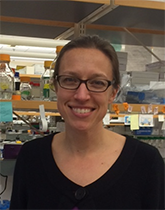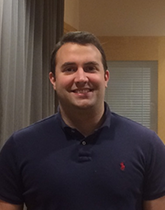 |
|
| Jennifer Calvo, PhD | |
 |
|
|
Nicholas Panzarino |
A new study published in Nature, based on research by UMass Medical School’s Sharon Cantor, PhD, helps scientists better understand how hereditary breast and ovarian cancer genes function in the repair of broken DNA.
Last year, Dr. Cantor, associate professor of molecular, cell & cancer biology, and colleagues published research in Genes & Development using an innovative genome-wide RNA screen to determine why so many instances of ovarian cancers develop resistance to the cancer drug cisplatin.
“Germline BRCA1 or BRCA2 mutations are a major cause of hereditary breast and ovarian cancers,” said Cantor. “The role is central not only to their function in tumor suppression, but also underlies the hypersensitivity of BRCA-deficient cancers to DNA damaging drugs, such as cisplatin, or PARP inhibitors, that inhibit DNA repair pathways. Until recently, the only known mechanism of chemoresistance in both BRCA1/2-mutant cancers is restored DNA repair that occurs by genetic reversion.”
The Cantor lab found that chemoresistance can be achieved independently of restored DNA repair in BRCA2-mutant cells through loss of a nucleosome-remodeling factor, CHD4. CHD4 depletion reduces the toxicity of cisplatin by enabling BRCA2 mutant cells to switch on a pathway known as DNA damage tolerance. According to Cantor, this switch by CHD4 loss is unique to BRCA2 mutant cells.
The Nature paper, led by National Institutes of Health lead investigator André Nussenzweig, PhD, further demonstrates that chemoresistance is not dependent on restored DNA repair. In particular, they found that resistance in BRCA1 or BRCA2 deficient mouse cells was achieved by loss of either PTIP or PARP1 because stalled replication forks were protected from nuclease digestion. Graduate School of Biomedical Sciences student Nicholas Panzarino, and Jennifer Calvo, PhD, research associate in Dr. Cantor’s lab, contributed to the study and discovered CHD4 loss in BRCA2 mutant cells also protected stalled replication forks.
“Furthering the clinical importance of this novel fork protection pathway of chemoresistance, in a cisplatin-resistant BRCA mouse tumor model fork protection was restored, but not DNA repair,” Cantor explained. “Therefore, to effectively treat patients, therapies should target the underlying defects in BRCA1/2-mutant cancer cells, as well as chemoresistance pathways that restore DNA repair and replication fork protection.”
Related story on UMassMedNow:
New drug resistance mechanism has implications for breast, ovarian cancer treatment